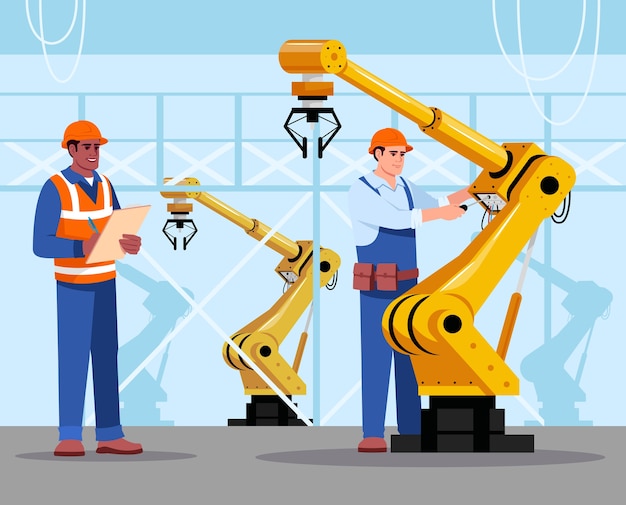- Manufacturing in the world accounts for more than 25% of the GDP
- Rapid advancements in technologies boost the manufacturing sector
- Real-time monitoring, connectivity and the internet of things ease the process
The manufacturing process today is the biggest parasite in the technology sector. Updated technologies are required in each and every area of self-reliant and indigenous production. Smart Factories and other big-scale manufacturing industries use automation, artificial intelligence, machine learning and predictive maintenance in their production line.
IoT has the ability to integrate information as well as operation in the manufacturing process. Real-time update and transmission of information help these process. It uses information technology and operations technology in smart factories for stronger results.
Below are some of the optimised sectors in the manufacturing sector benefitted from ( Internet of Things ) IoT
Autonomous Manufacturing
 Today’s manufacturing has different stages ranging from pre-production to post-production. Real-time and inventory data with advanced planning and prototyping help autonomous functioning. In other words, autonomous manufacturing is just an instruction based process from start to end. Robots are making it more effective with the execution of routine processes.
Today’s manufacturing has different stages ranging from pre-production to post-production. Real-time and inventory data with advanced planning and prototyping help autonomous functioning. In other words, autonomous manufacturing is just an instruction based process from start to end. Robots are making it more effective with the execution of routine processes.
Warehouse Operations
 The soul strength of a production unit is its logistic capability. Factors like transit, supply and distribution in a manufacturing facility, if automated and implied with the best technology can produce good results. Technologies like Augmented Reality also assist personnel with pick-and-place tasks. Further, operations can be executed with the help of Autonomous Robots and Machine Learning.
The soul strength of a production unit is its logistic capability. Factors like transit, supply and distribution in a manufacturing facility, if automated and implied with the best technology can produce good results. Technologies like Augmented Reality also assist personnel with pick-and-place tasks. Further, operations can be executed with the help of Autonomous Robots and Machine Learning.
Inventory Tracking
![]() Resource Management and Data Handling is also a crucial process. Tracking of Goods and their location helps maintain the stocks and list of the product within the manufacturing facility. Today, in order to facilitate this process, production units use sensors. These sensors can track the real-time situation of goods and raw materials working situation and schedule. Analytics can optimize inventory on hand and automatically signal for replenishment.
Resource Management and Data Handling is also a crucial process. Tracking of Goods and their location helps maintain the stocks and list of the product within the manufacturing facility. Today, in order to facilitate this process, production units use sensors. These sensors can track the real-time situation of goods and raw materials working situation and schedule. Analytics can optimize inventory on hand and automatically signal for replenishment.
Quality Analysis

Producing good yield is not the only option, analysing the right quality and quantity is the equal impetus factor. Today IoT based quality testing is used for real-time monitoring and improves potential quality issues.
Maintenance
 Likewise in the logistic section, Augmented Reality can also assist maintenance personnel in repairing equipment. Sensors once again play a pivotal role in cognitive maintenance and analytics. Maintenance of technical resources is almost necessary so as to avoid interruptions and discrepancies.
Likewise in the logistic section, Augmented Reality can also assist maintenance personnel in repairing equipment. Sensors once again play a pivotal role in cognitive maintenance and analytics. Maintenance of technical resources is almost necessary so as to avoid interruptions and discrepancies.
By: Mannu Mathew | Sub Editor | ELE Times
The post Manufacturing Efficiently: How does Internet of Things Help appeared first on ELE Times.
No comments:
Post a Comment